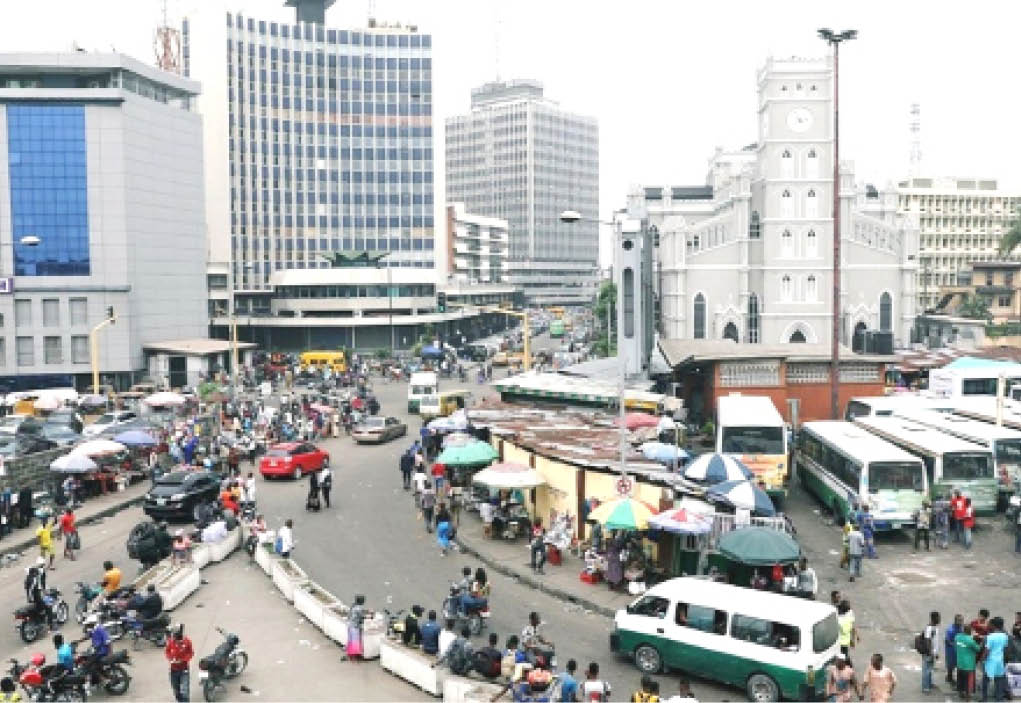The Nigerian economy is mired in a mesh of problems that have constrained its performance over the years, but the biggest missing variable is purposeful leadership, says the Nigerian Economic Summit Group (NESG).
“Bad leadership has been Nigeria’s biggest problem since 1960. Nigeria’s political process is highly commercialised or monetised; thus, the process is plagued with a deficit of ideas competition,” NESG stated in a report of its National Economic Dialogue held in Abuja on May 20, 2022.
- Organ Harvesting: Nigerian Lady offers her kidney to Ekweremadu’s Daughter
- INEC will extend voter registration deadline – Yakubu
The NESG is a private sector-led think tank and policy advocacy platform for the sector’s engagement with regulators and policymakers to promote sustainable growth and development of Nigeria’s economy.
This leadership vacuum has led to a plethora of troubles facing the economy, from macroeconomic instability to infrastructural decay and food insecurity, the report noted.
“Since politics is superior to the economy as it provides the process or ecosystem that produces the type of leaders to govern the country, Nigeria’s lack of strong leadership with the capacity to understand its problems and solve them is her biggest problem,” the group added.
Due to this bad leadership experience, Nigeria is classified as a nation with a low-grade civil war on the Failed Nation Index, it added.
Interestingly, this scathing summary of the country’s perfunctory political leadership came before the charade called political parties’ primaries that turned out to be bazaars of sorts at which the highest bidder got a party’s nomination for a presidential ticket for the elections scheduled next year.
In such a monetised political ecosystem, the country’s political maturity is delayed because the choice of a credible leadership becomes an uphill task, the group stated.
“Nigeria is about 70 years behind the democracy oscillation. The country has moved from semi-authoritarian to illiberal and in such a situation, there exist political people controlling the process and making votes not to count,” it stated.
For those who have put their hope on the 2023 polls as providing a basis to salvage the economy, the Dialogue has a word of caution: it could turn out to be a paradise postponed. According to the report, critical discussions about the state of the economy are not held in places where politicians are having conversations about the 2023 elections.
Worst still, it noted that the process of electing leaders within the political parties “is about the highest bidder and the highest spender; it is not about the one who has the best ideas to fix the problems of the country,” adding that political parties “are not interested in debates about core issues.”
“The current political system and process that Nigeria has cannot produce the leaders the country desires and deserves in 2023,” it further noted.
The report lists the troubles stunting the growth and development of Nigeria’s economy to include a weak and non-inclusive economy, highly volatile macroeconomic environment, weak economic competitiveness, infrastructure and social sector collapse, and national insecurity.
With a compound annual growth rate estimated at 1.92 per cent between 2012 and 2021, the economy grew below the yearly population rate of 2.6 per cent, the report added.
“After netting out inflation and other costs, the real size of the Nigerian economy has remained relatively the same since 2012, which implies that the country is experiencing economic stagnation,’ the report stated. It noted that stagnation meant that for the average Nigerian real income had been declining since 2012 and welfare worsening.
It added that as at 2021, the strategic sectors, including agriculture, manufacturing, construction, real estate, information and communication technology and finance completely underperformed.
Nigeria’s low productivity environment did not escape the group’s attention, noting that one of the best indicators of this is the decline in labour productivity from 16.9 per cent in 2012 to just 1.7 per cent in 2021. This reflects the extent of macroeconomic imbalance/instability in the country, the report said.
It further noted that Nigerians were facing tough times as inflationary pressure remained heightened, with labour market conditions deteriorating.
The Word Bank, in its June 2022 edition of the Nigeria Development Updated, noted that this year, an additional one million Nigerians would fall into extreme poverty due to inflationary pressure resulting chiefly from the Ukraine war. The one million is in addition to six million previously projected by the bank to slide into poverty this year, making it a total of seven million that will enter into the poverty belt this year alone.
The NESG also noted the paradox of plenty that has characterised life in Nigeria as an oil-producing nation. This is equivalent to one being thirsty at the riverside.
The NESG noted, as did the World Bank’s NDU, that despite improving global oil prices, the local economy continued to suffer from worsening external trade positions and dwindling foreign investment inflows, contrary to the experience of other oil-producing nations.
“This suggests that Nigeria has failed to appropriate the benefits of rising oil prices due to low crude oil production, high production costs, low investment and a fuel subsidy regime,” it stated.
Currently, Nigerians are going through another round of petroleum product scarcity as marketers say the current price of petrol between N162 and N165 per litre is longer sustainable.
Nigeria’s petroleum subsidy is estimated to cost N5trillion this year. Initially, the government had said it was going to remove the subsidy, prod by the World Bank and the International Monetary Fund, but it later changed its mind.
“Most western countries are today implementing fuel subsidy. Why would we remove ours now? What is good for the goose is good for the gander,” President Muhammadu Buhari explained in an interview with Bloomberg News.
Weak economic competitiveness is another hallmark of the Nigerian economy, the report says. According to the NESG, since 2017, the country has maintained the 133rd position out of 133 countries on the global complexity index. This, it said, implied that Nigeria’s productivity base is fundamentally archaic and structurally deficient.
The economic complexity index ranks countries based on the diversity and sophistication of the productive capabilities embedded in the exports of each country. It thus helps to explain income differences across countries and predict future growth better than any other single measure, as it highlights the dynamics and prospects of the country based on the knowledge capacities and innovation potential of the country.
Closely tied to the above features of the economy is infrastructure and social sector collapse. There is hardly any sector of the economy that is spared. About 100 million Nigerians, nearly half of the country’s estimated 214 million people, do not have access to electricity, just as the country’s health care system in 2018 ranked 178th out of 192 countries, the report said, citing the World Health Organisation.
It also noted that 20 per cent of global out-of-school children were Nigerians, while the country in 2019 ranked 161st out of 189 countries on the global human development index (HDI), with the country’s life expectancy averaging 54 years.
Solutions
For the NESG, the key solution to Nigeria’s problems is transformational leadership. “Nigeria needs a strong leader like Lee Kuan Yew. There is a need for a leader that is emotionally attached to the country’s development, and who also understands that the country needs to be built.
“Nigeria is a hyperactive country and requires a very engaging and mobile leader who can communicate,” it stated.
With an honest and effective government, Nigeria will achieve an inclusive growth and development, it further noted.
Nigeria must also fix its political system, the report noted. According to the group, there is a need to have a new set of people in politics, especially those that understand the larger picture.
“Every minister or political appointee must have a certain intellectual capacity to resolve challenges,” it stated, adding that these are in addition to making the government unattractive in terms of personal benefits.
Another key step to be taken urgently in this regard is diversification of the economy to move the country away from the present overdependence on oil revenue. More diversified economies in sub-Saharan Africa are well-positioned to mitigate shocks, according to the NESG, citing the example of Rwanda.
“For Nigeria to be resilient to domestic and external macroeconomic shocks, it is important to diversify the economic structure from oil to other domestic sectors, where Nigeria has comparative advantages, such as agriculture,” it also stated.
Concomitantly, there should also be a move to ensure that the private sector becomes the main engine for growth and diversification and job creation in the country. As the discussants noted at the Dialogue, the government has no business being in business.

 Join Daily Trust WhatsApp Community For Quick Access To News and Happenings Around You.
Join Daily Trust WhatsApp Community For Quick Access To News and Happenings Around You.

